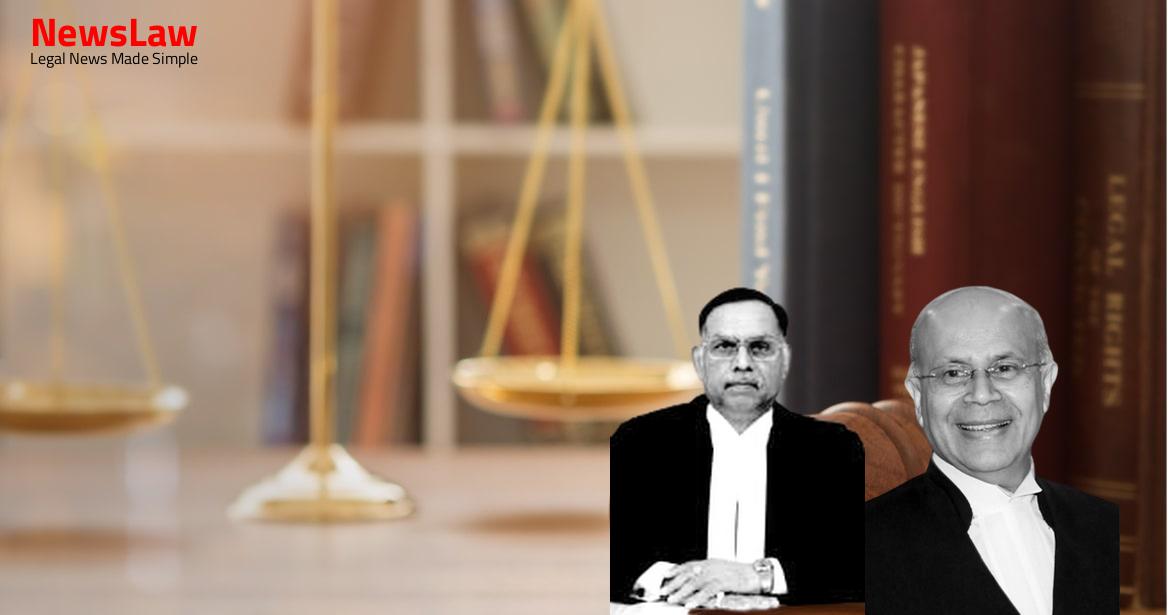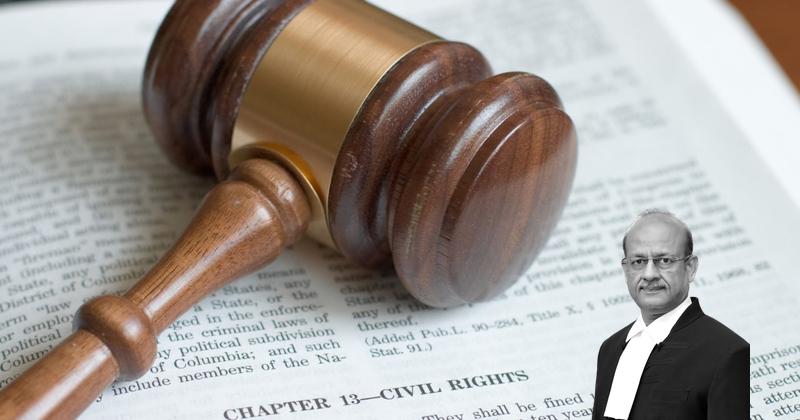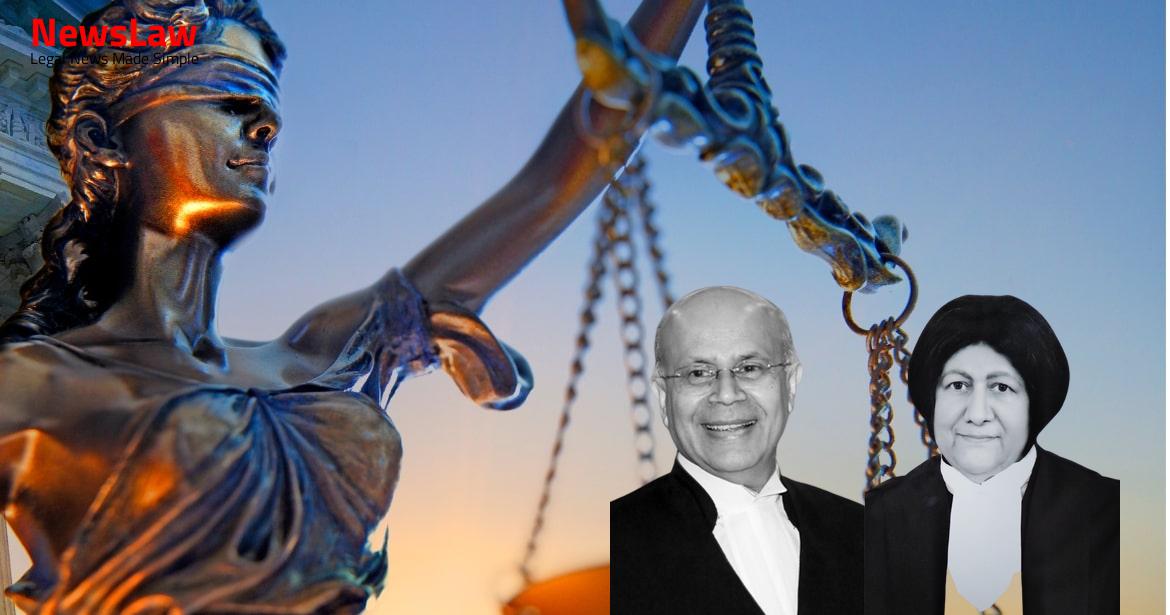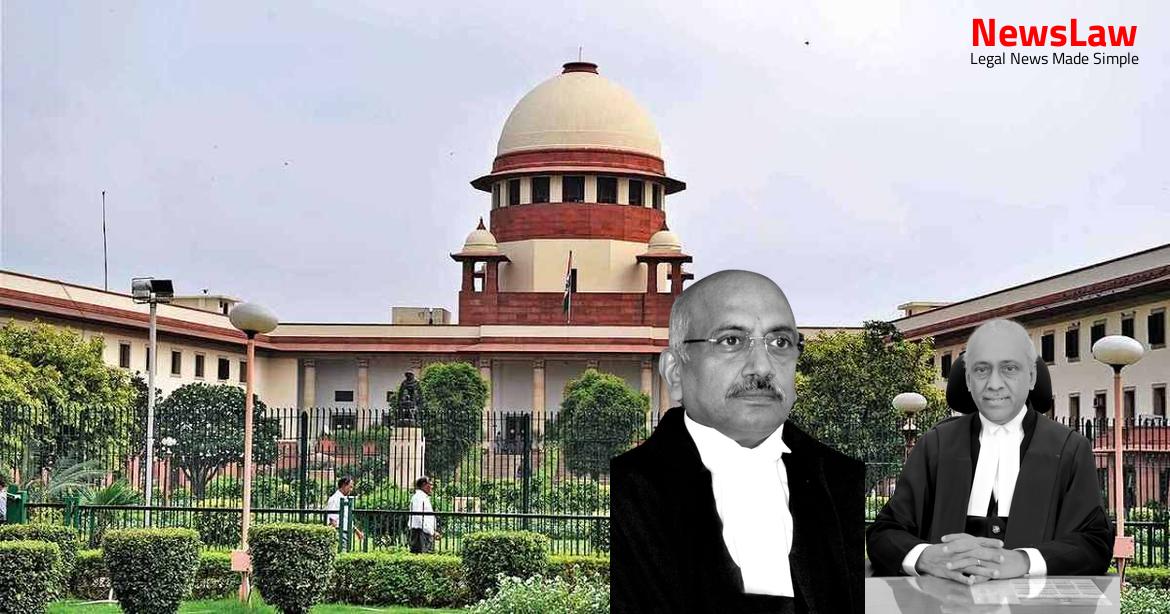In a recent landmark judgment by the Supreme Court of India, a ruling was made on the challenge to recruitment rules. The case involved critical considerations regarding the validity of specific provisions within the rules. This decision has far-reaching implications in the realm of recruitment processes and service conditions. Stay tuned to understand the legal intricacies and implications of this ruling.
Facts
- Several appeals filed against the judgment dated 28.09.2018 of the Bombay High Court by Rajesh Shrirambapu Fate
- State of Maharashtra challenged the judgment citing various grounds
- Governor of Maharashtra framed the Rules, 2016 under proviso to Article 309
- MPSC initially notified 858 posts which later reduced to 833 posts, with further requisition for 670 additional posts
- Selected candidates were not made parties to the Writ Petition No.1270 of 2018 before the High Court
- State Government rejected the representation of Rajesh Fate citing previous rejection by the Maharashtra Administrative Tribunal
- Various challenges to the Rules, 2016 were dismissed by different forums like O.A. No.615 of 2017 and Writ Petition No.7685 of 2017
- State of Maharashtra and MPSC filed counter affidavits in Writ Petition No.1270 of 2018
- High Court allowed Rajesh Fate to challenge the select list dated 31.03.2018
- MPSC issued advertisement no.48 of 2017 for Main examination conducted on 06.08.2017
- Writ Petition No.1270 of 2018 challenged the Recruitment Rules, 2016 and subsequent advertisements
- Maharashtra State Administrative Tribunal also dismissed various O.As. challenging the Rules of 2016
- State of Maharashtra filed Civil Appeal No.5446 of 2019 against the judgment of 28.09.2018
- Transport Commissioner directed the verification of documents for selected candidates on 05.06.2018
- Amended prayers in Writ Petition No.1270 of 2018 sought quashing of various advertisements and select list
- High Court permitted the challenge to advertisement Nos.2 of 2017 and 48 of 2017
- High Court allowed the amendment of prayer challenging the advertisements and select list by Rajesh Fate
- Abhijit Appasaheb Vasagade and other candidates included in the select list got impleaded in W.P. No.1270 of 2018
- MPSC declared the final result with a select list of 832 candidates on 31.03.2018
- State government requisitioned MPSC for conducting the examinations which led to the entire recruitment process
- High Court erred in issuing directions to modify the select list of 832 candidates
- Selected candidate in reserved category vacancy was deemed a necessary party
- Writ petitioner was not allowed to challenge the advertisements dated 30.01.2017 and 01.07.2017
- High Court set aside Proviso at the end of Rule 3(iii) and Rule 3(iv) and Rule 4 of Rules, 2016
- High Court directed the selection of only those candidates who fulfill the requirements of practical experience and driving license as per Central Government qualifications
- Select list was not to be interfered when the recruitment process was not challenged
- Previous writ petition order dated 13.11.2017 was considered in the decision
Issue
- The question addressed by the Constitution Bench is whether the parties directly affected by the order of a tribunal are necessary parties to a writ petition aimed at quashing the said order.
- The Constitution Bench, in paragraphs 6, 7, and 9, provided key points on this matter.
- It was deliberated whether in a writ of certiorari under Article 226 of the Constitution, the parties who were favored by the tribunal’s decision being challenged need to be included as necessary parties to the petition.
- The importance of defining the necessary parties in such petitions was highlighted to ensure fair and effective judicial review.
- The ruling emphasized the critical consideration of the involvement of parties directly impacted by the tribunal’s decision when filing a writ petition for its quashing.
Also Read: Dispensation with Personal Appearance in Criminal Case: Landmark Judgement by Supreme Court of India
Arguments
- The petitioner’s contention is that the criteria adopted by the Union Government in drawing up the seniority list are invalid and illegal.
- The relief claimed is against the Union Government restraining it from upsetting or quashing the already drawn up valid list and for quashing the impugned seniority list.
- The petitioner argues that the petitioner has no locus to file a writ petition, having not participated in the recruitment.
- It is emphasized that the State has legislative competence regarding the State Public Services Commission under Entry 41 List II of the Constitution of India.
- The provisos to Rule 3(iii) and Rule 3(iv) do not lower the minimum qualification but only provide a two-year breathing period for selected candidates.
- The petitioner is deemed to have given up the right to challenge specific advertisements by not doing so in an earlier writ petition.
- The rules in question comply with the notification of the Central government dated 12.06.1989.
- There is an argument that subsequent events, such as the notification dated 08.03.2019, should be considered in the case.
- It is contended that the High Court should have dismissed the writ petition denying relief to the petitioner based on the facts of the case.
- The petitioner has been accused of not impleading selected candidates, which impacts the validity of certain directions issued by the High Court.
- Counsel for Respondent argues that they are qualified for the post and have jurisdiction to challenge the Rules of 2016.
- There was no delay in challenging the Rules of 2016 by the writ petitioner.
- Rules of 2016 diluted the minimum qualification set by the Central Government in 1989.
- The State cannot appoint someone who does not meet the minimum qualification criteria.
- High Court should not be silent when Rules allow the appointment of under-qualified individuals.
- Issue of seniority list discrepancy raised, indicating that relief cannot be granted to the appellants.
- Disqualified individuals should not receive salary if they are not performing their duties.
- Direct recruits have also been represented in the case, dismissing the contention of lack of representation.
Also Read: Case of Unnatural Death in Matrimonial Home: Supreme Court Judgment
Analysis
- The High Court erred by modifying the select list without involving the selected candidates whose interests were impacted.
- The High Court made unsustainable directions in the absence of selected candidates in the writ petition.
- The High Court should not have examined the validity of Rules, 2016 as the petitioner was not allowed to challenge the advertisements or the select list.
- The High Court treated the writ petition as a Public Interest Litigation (PIL) despite relating to service conditions.
- Inclusion in the select list gives candidates the right to consideration for appointment, which cannot be denied without valid reasons.
- The order of the High Court was influenced by concerns of public revenue, essentially treating the case as a PIL.
- A party directly affected by an order is necessary for it to be effective; non-involvement of such a party renders the order incompetent.
- In a case where the petitioner wanted her selection against a reserved category vacancy, the last selected candidate in that category was deemed a necessary party.
- The High Court could not entertain the writ petition without impleading the last selected candidate as a necessary party.
- The law laid down by a Constitution Bench in Udit Narain Singh Malpaharia v. Additional Member, Board of Revenue, Bihar and Anr., AIR 1963 SC 786, distinguishes between necessary party, proper party, and proforma party.
- It was highlighted that if a person likely to suffer from the court’s order has not been impleaded as a party, they have a right to ignore the order as it violates principles of natural justice.
- The Court emphasized that Public Interest Litigation (PIL) should not be entertained in service matters, as reiterated in Ayaaubkhan Noorkhan Pathan vs State of Maharashtra and others, (2013) 4 SCC 465.
- Provisions of the Civil Procedure Code (CPC) are not directly applicable in writ jurisdiction, but the principles within it are still relevant.
- The High Court observed that non-joinder of a necessary party could be fatal as per the proviso to Order I, Rule IX of the CPC.
- The loss to public revenue and its impact on society due to omissions in making services available to citizens necessitated cognizance in the writ petition.
- The judgment in A. Janardhana is not applicable to the present case.
- The facts of the present case are different from those in A. Janardhana.
- The reliance on Shri Naphade on A. Janardhana is misplaced.
- The High Court erred in entertaining the challenge to the validity of Rules, 2016, as they were in reference to recruitment under specific advertisements.
- The High Court should not have issued directions in paragraph 51 of the judgement.
- Examining the validity of Rule 3(iii), Rule 3(iv), and Rule 4 of the Rules, 2016 was deemed unnecessary in the present case.
- The directions issued by the High Court in paragraph 51 were considered unsustainable.
- Various submissions regarding Rules, 2016 were not required to be delved into by the High Court in the context of the case.
Decision
- The validity of Rule 3(iii), Rule 3(iv), and Rule 4 of the Rules, 2016 was not discussed in the present case.
- The court decided to leave the issues regarding the validity of the rules open for determination in a future case.
- The appeals were allowed, and the judgment of the Division Bench of the High Court was set aside.
- The Writ Petition No. 1270 of 2018 was dismissed.
- Each party will bear their own costs.
- The writ petition was disposed of on 13.11.2017 with the liberty to make a representation to the State.
Case Title: VISHAL ASHOK THORAT Vs. RAJESH SHRIRAMBAPU FATE
Case Number: C.A. No.-005444-005444 / 2019



